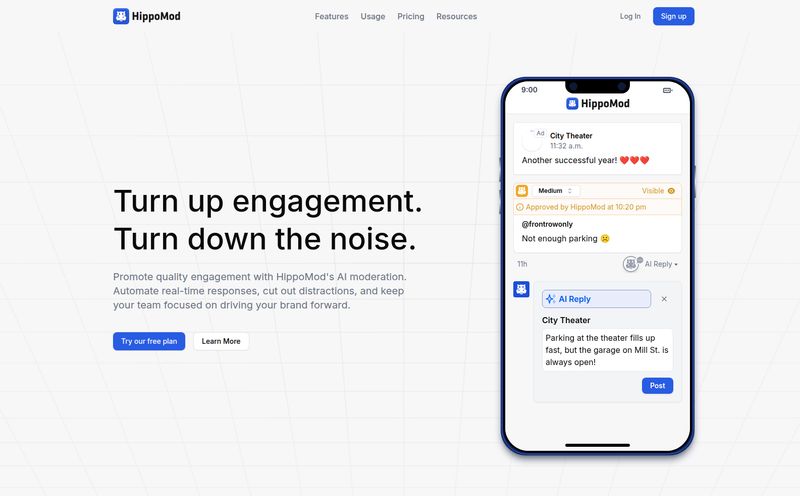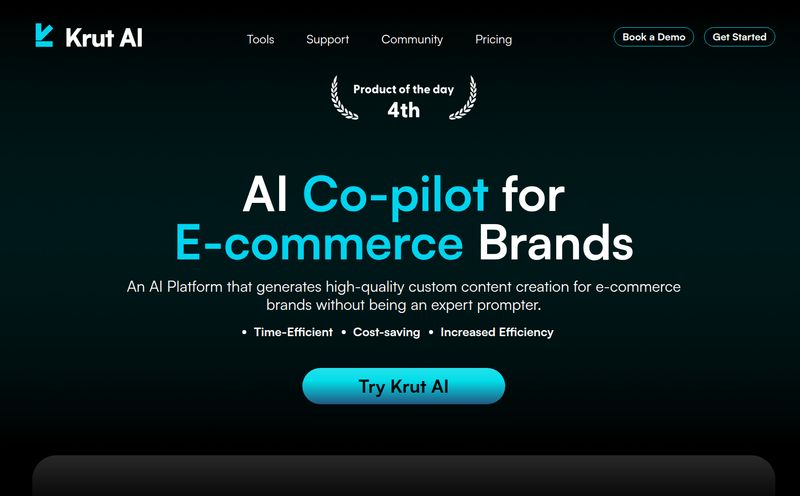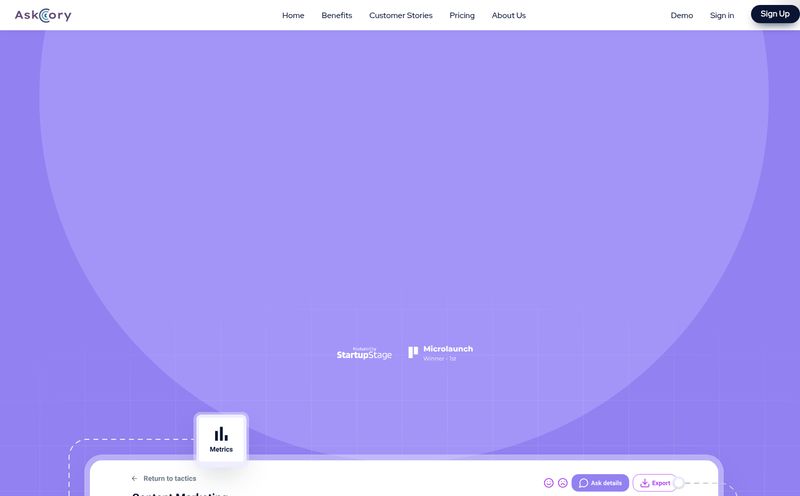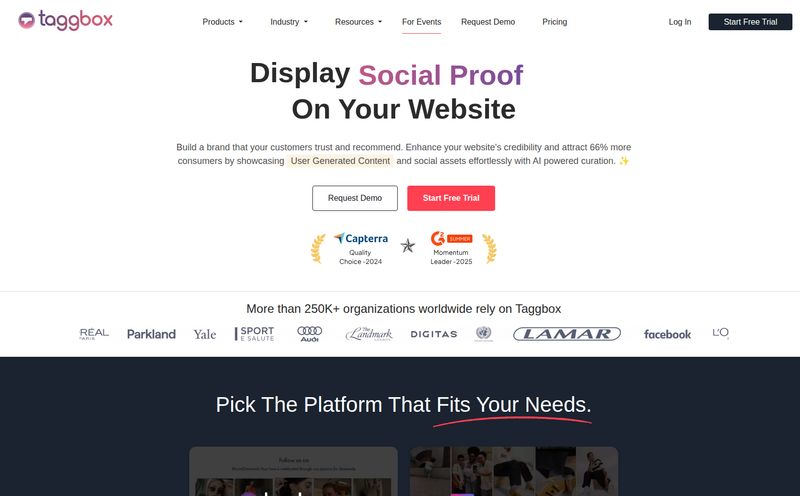If you've spent more than five minutes thinking about starting an online business, you've heard the name: Shopify. It's everywhere. It’s the default, the behemoth, the name that gets thrown around in Facebook groups and marketing podcasts like it's the only option on the menu. And for good reason, mostly.
I’ve been in the SEO and traffic generation game for years now. I've seen platforms rise and fall. I've worked with clients on clunky, custom-coded nightmares and on sleek, streamlined systems. And time and time again, I find myself coming back to Shopify. But is it just habit? Or is it genuinely the best e-commerce platform out there for most people? That’s what we're going to get into. No corporate fluff, just my honest, battle-tested opinion.

Visit Shopify
So, What Is Shopify, Really?
Let’s get this out of the way. Calling Shopify just a “website builder” is like calling a Swiss Army knife just a knife. It’s so much more than that. At its core, yes, Shopify gives you the tools to create a beautiful online store. But that's just the storefront. Shopify is the entire building. It's the stockroom, the cash register, the marketing department, and the analytics guy in the back office, all rolled into one platform.
It's an entire commerce ecosystem designed to let you sell stuff. Anywhere. You can sell through your stunning website, on Instagram, on Facebook, out of the trunk of your car with their Point of Sale (POS) system... you get the idea. It's built for the modern world where your customers are everywhere, and you need to be too.
The Features That Actually Move the Needle
You can read a feature list anywhere. Let's talk about what actually makes a difference when you're trying to grow a business.
Your Digital Home Base and Storefront
This is the obvious one. Shopify’s drag-and-drop store builder is pretty slick. You don't need to be a coding genius or a graphic designer to make something that looks professional and, more importantly, converts visitors into customers. There are tons of themes—some free, some paid—that give you a fantastic starting point. The checkout process is another thing entirely. It's been tested and optimized over millions of transactions. It’s fast, reliable, and trustworthy, which is HUGE for reducing abandoned carts. Don't underestimate the power of a smooth checkout.
Selling Beyond the Website
This is where Shopify starts to pull away from the pack. The world of e-commerce isn't just about `yourstore.com` anymore. It's about omnichannel. A customer might see your product on TikTok, browse on your website, and then want to buy it in person at a pop-up shop. Shopify’s POS system syncs your online and in-person inventory seamlessly. It means you can manage your entire business from one place, which saves you a world of headaches. I’ve seen clients try to duct-tape different systems together, and it's always a mess. Always.
The Real Secret Weapon: The App Store and AI
Here’s the thing. Shopify itself is fantastic, but its real power is its extensibility. Think of it like a LEGO set. The basic Shopify platform is a really solid foundation, but the App Store is where you find all the cool, unique bricks to build whatever you can imagine. With over 13,000 apps, you can add any functionality you want: advanced email marketing, loyalty programs, subscription boxes, dropshipping integrations, you name it. Its a massive advantage.
And now they're weaving in AI with something called Shopify Magic. It can help you write product descriptions, suggest email subject lines, and automate customer service responses. Is it going to run your business for you? No. But it can take a lot of the tedious, time-sucking tasks off your plate, freeing you up to focus on the bigger picture. I'm genuinely excited to see how this develops.
Let’s Talk Money: The Shopify Pricing Breakdown
Okay, the million-dollar question—or, more accurately, the $29/month question. How much does this all cost? Shopify’s pricing is tiered, which is great because it can grow with you. Here's a simplified look at their main plans (prices are often localized, so check their official site for your region!).
| Plan | Price (approx.) | Best For |
|---|---|---|
| Starter | ~$7 SGD/month | Selling instantly through social media or messaging apps. Super basic. |
| Basic | ~$29 SGD/month | New businesses and solo entrepreneurs who need a full online store. |
| Grow (Shopify) | ~$99 SGD/month | Growing businesses with small teams that need more reporting and features. |
| Advanced | ~$399 SGD/month | Scaling businesses that require advanced analytics and lower transaction fees. |
| Plus | Starts at $2,300 USD/month | Large enterprises with high volume and complex needs. |
One crucial thing to note: Shopify charges transaction fees. If you use their own payment processor, Shopify Payments, the fees are competitive. If you use a third-party gateway like PayPal or Stripe, they'll charge an additional fee on top of what that processor already charges. It's a bit of a sneaky way to encourage you to stay within their ecosystem, and something you need to factor into your costs.
The Good, The Bad, and The Brutally Honest
Why I Still Think Shopify Is a Top Contender
When it comes down to it, Shopify wins on its sheer completeness. It's scalable, meaning you won't have to go through the agony of replatforming when your business takes off. The app store provides almost limitless customization. And it's reliable. You don't have to worry about server maintenance, security patches, or your site going down during a huge sale. Shopify handles all that techy stuff so you can just focus on selling. For a business owner, that peace of mind is worth its weight in gold.
Where Shopify Can Be a Pain
It's not all sunshine and rainbows. For someone on an absolute shoestring budget, that monthly fee can feel steep, especially when you compare it to something like WooCommerce which is technically free (though you pay for hosting, themes, etc). The transaction fees can sting if you're not using Shopify Payments. And honestly? The sheer number of features can be a bit overwhelming for a total beginner. You log in and there are just so. many. options. It can lead to a bit of paralysis by analysis.
FAQs I Get All The Time
Is Shopify good for absolute beginners?
Yes, but with a small learning curve. It's designed to be user-friendly, but because it's so powerful, it takes a little time to explore all the settings. Stick to the basics at first, and you'll be fine.
Can I use Shopify if I don't want an online store?
Absolutely. The 'Starter' plan is designed for just that. You can sell through social media links or use the POS system for in-person sales without managing a full website.
What are the transaction fees really like?
They vary by plan. On the Basic plan, you'll pay a fee per online transaction. This fee gets lower on the higher-tier plans. If you don't use Shopify Payments, you'll pay an extra fee (from 0.5% to 2%) on top of whatever your chosen payment processor charges. It's a big factor.
Do I have to be a designer to make my store look good?
Not at all. The free and paid themes are designed by professionals. Your job is just to add your branding, your photos, and your text. You can create a beautiful store without writing a single line of code.
Is Shopify Plus worth the huge price tag?
For 99% of businesses, no. Shopify Plus is for high-volume enterprises that need dedicated support, extreme customization capabilities (like editing the checkout code), and tools to manage multiple stores. You'll know when you need it.
How does the Shopify AI actually help?
Think of it as a smart assistant. It's great for overcoming writer's block. Need a product description? Give it a few keywords and Shopify Magic will draft one for you. Need a blog post idea? It can help with that too. It's a time-saver, not a replacement for human creativity.
The Final Verdict: Should You Go with Shopify?
After all these years, my answer is still a resounding yes, for most people. If you are serious about building a scalable, long-term e-commerce business, Shopify provides the most robust, reliable, and comprehensive foundation you can build on. It takes the technical headaches out of the equation and lets you be what you're supposed to be: a business owner.
Sure, there are cheaper ways to start, and there are more complex platforms for niche needs. But for that vast majority of entrepreneurs, from the side-hustler to the growing brand, Shopify hits that sweet spot of power and simplicity better than anyone else. It's an investment, for sure, but it’s one that pays off by letting you focus on what truly matters: growing your brand and making sales.



